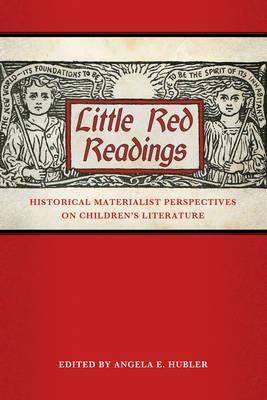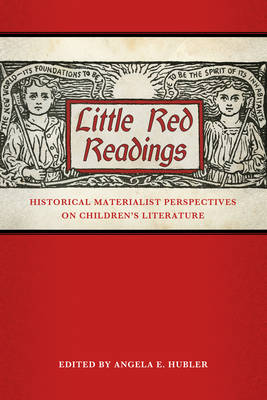
- Afhalen na 1 uur in een winkel met voorraad
- Gratis thuislevering in België vanaf € 30
- Ruim aanbod met 7 miljoen producten
- Afhalen na 1 uur in een winkel met voorraad
- Gratis thuislevering in België vanaf € 30
- Ruim aanbod met 7 miljoen producten
Zoeken
Little Red Readings
Historical Materialist Perspectives on Children's Literature
€ 186,95
+ 373 punten
Omschrijving
Essays by Ian Andrews, Roland Boer, Heidi Brush, Angela Hubler, Cynthia Anne McLeod, Carl F. Miller, Jana Mikota, Mervyn Nicholson, Jane Rosen, Sharon Smulders, Justyna Deszcz-Tryhubczak, Anastasia Ulanowicz, Naomi Wood A significant body of scholarship examines the production of children's literature by women and minorities, as well as the representation of gender, race, and sexuality. But few scholars have previously analyzed class in children's literature. This definitive collection remedies that by defining and exemplifying historical materialist approaches to children's literature. The introduction of Little Red Readings lucidly discusses characteristics of historical materialism, the methodological approach to the study of literature and culture first outlined by Karl Marx, defining key concepts and analyzing factors that have marginalized this tradition, particularly in the United States. The thirteen essays here analyze a wide range of texts--from children's bibles to Mary Poppins to The Hunger Games--using concepts in historical materialism from class struggle to the commodity. Essayists apply the work of Marxist theorists such as Ernst Bloch and Fredric Jameson to children's literature and film. Others examine the work of leftist writers in India, Germany, England, and the United States. The authors argue that historical materialist methodology is critical to the study of children's literature, as children often suffer most from inequality. Some of the critics in this collection reveal the ways that literature for children often functions to naturalize capitalist economic and social relations. Other critics champion literature that reveals to readers the construction of social reality and point to texts that enable an understanding of the role ordinary people might play in creating a more just future. The collection adds substantially to our understanding of the political and class character of children's literature worldwide, and contributes to the development of a radical history of children's literature.
Specificaties
Betrokkenen
- Uitgeverij:
Inhoud
- Aantal bladzijden:
- 304
- Taal:
- Engels
- Reeks:
Eigenschappen
- Productcode (EAN):
- 9781617039874
- Verschijningsdatum:
- 1/04/2014
- Uitvoering:
- Hardcover
- Formaat:
- Genaaid
- Afmetingen:
- 152 mm x 229 mm
- Gewicht:
- 616 g

Alleen bij Standaard Boekhandel
+ 373 punten op je klantenkaart van Standaard Boekhandel
Beoordelingen
We publiceren alleen reviews die voldoen aan de voorwaarden voor reviews. Bekijk onze voorwaarden voor reviews.










